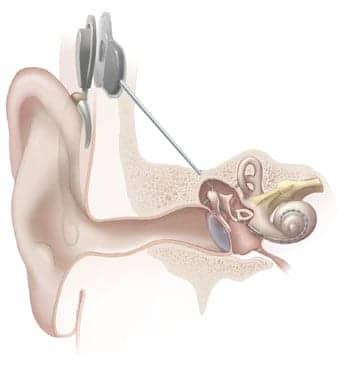Research published in the New Zealand Medical Journal shows that patients waiting for adult cochlear implantation can have more illnesses than patients with cochlear implants. 
The paper, “Health Effects of Cochlear Implants” by Guitar et al, was published in the June edition.
In New Zealand, access to cochlear implantation for adults is limited, but paid for by a national health system. As a result, adults must go on a waiting list and are given no estimated date of surgery. Many remain on that waiting list for more than a year, and average waiting list time is about 4 years.
The team’s goal was to determine whether people on a waiting list for cochlear implantation are more likely than those who have cochlear implants to suffer from illnesses that are potentially mediated by stress.
They examined 44 adults on the cochlear implant waiting list and compared it to 119 who had implants. A questionnaire, designed to assess the presence, persistence, and medication use associated with stress-related illnesses, was administered to the two groups.
Based on their responses, those on the cochlear implant waiting list had significantly poorer health than adults with cochlear implants. The waiting list group suffered from a greater number of conditions, longer illness length when affected by a condition, took more medication, and had poorer mental health.
The paper concludes that “Chronic stress may increase the risk of physical and mental illness via physiological systems which mediate response to environmental threats. Cochlear implantation may alleviate chronic stress in people on the waiting list, and these findings support the hypothesis that this influences physical health.”
SOURCE: The New Zealand Medical Journal





